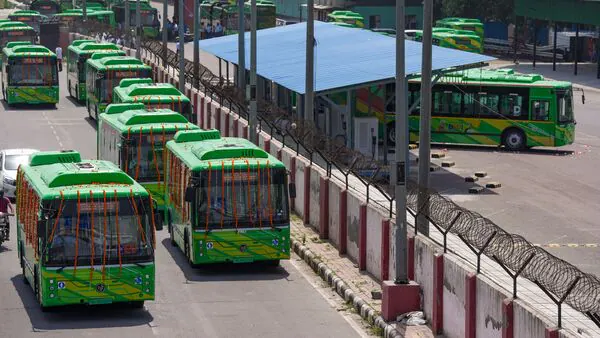News List
Only 12 States Join Centre’s Payment Security Mechanism for E-Buses

India’s ambitious plan to deploy 38,000 electric buses under the PM E-bus Sewa scheme faces a key roadblock — only 12 states and Union territories have completed the payment security mandate with the Reserve Bank of India (RBI).
According to officials aware of the matter, Gujarat, Karnataka, Rajasthan, Punjab, Telangana, Andhra Pradesh, Madhya Pradesh, Meghalaya, Maharashtra, Uttarakhand, Odisha, and Jammu & Kashmir have so far submitted the Direct Debit Mandate (DDM) under the Union government’s Payment Security Mechanism (PSM).
The PSM is designed to reassure electric bus manufacturers and operators that they will receive timely payments from state transport agencies (STAs) and public transport authorities (PTAs). It acts as a form of bank guarantee, ensuring that if a procuring agency defaults, funds can be released directly to bus makers and operators.
Officials said Maharashtra joined the mechanism in August, followed by Odisha and Jammu & Kashmir in September, bringing the total to 12 participating regions. The remaining 24 states and UTs have yet to comply, including Delhi — despite being the largest buyer of e-buses in India.
The government launched the PSM last year after multiple reports of delayed payments to e-bus manufacturers under earlier procurement rounds. The mechanism operates alongside the ₹10,900-crore PM E-Drive scheme, which aims to make 14,028 e-buses affordable for cities through subsidies, and to fund the installation of over 72,000 charging stations nationwide.
The Ministry of Heavy Industries, which manages the PSM, has allocated around ₹3,435 crore to establish a fund that will serve as a fallback for defaulting PTAs and STAs. However, the slow pace of DDM submissions threatens to delay large-scale deployment under the National Electric Bus Programme (NEBP).
Industry experts say the PSM is crucial for building confidence among electric bus manufacturers and operators, who have been hesitant to bid for new tenders after facing delayed or missed payments. They also note that faster implementation will accelerate India’s transition to zero-emission public transport.
A NITI Aayog–WRI study earlier this year ranked Delhi, Maharashtra, and Chandigarh as leaders in electric mobility policy. Yet, the limited participation in the PSM underscores the uneven readiness among states to support large-scale e-bus deployment.
With India’s e-bus sales rising 37% year-on-year in H1 FY26, the government’s next challenge will be ensuring all states establish payment security — a crucial step toward keeping its green mobility ambitions on track.
